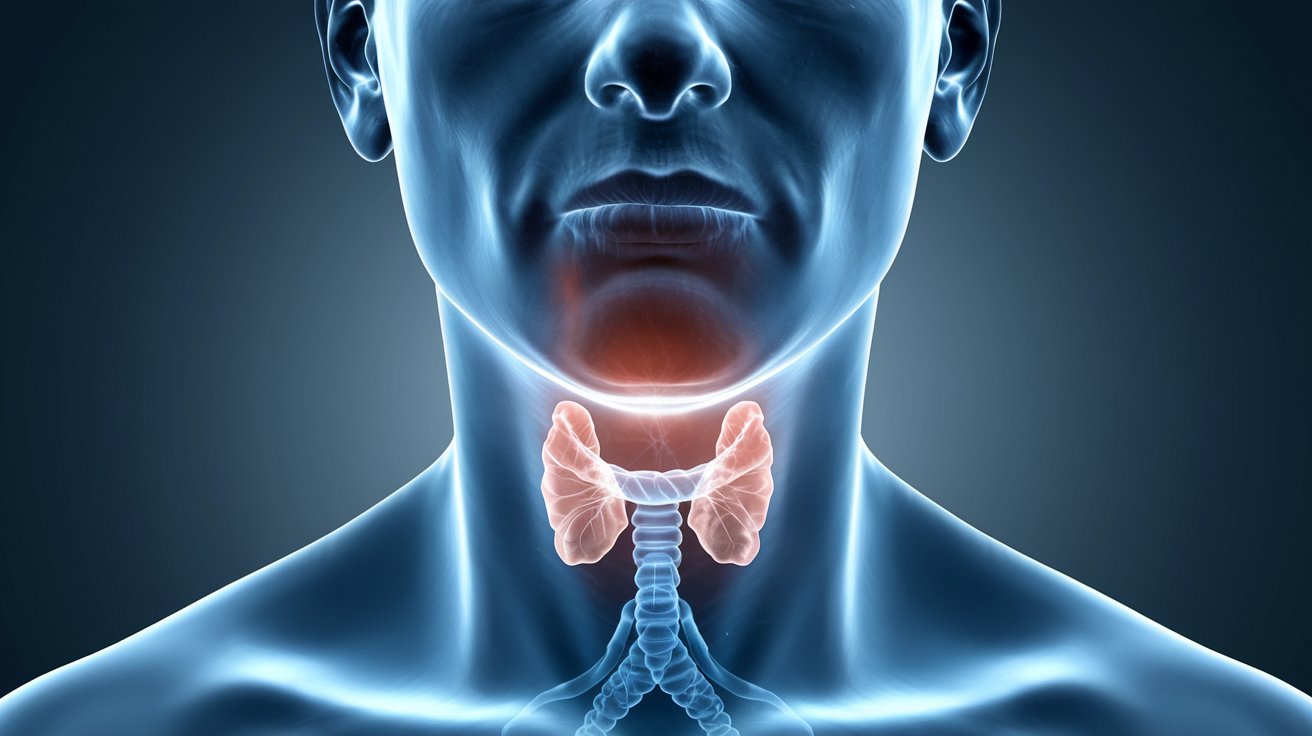
Resistance to Thyroid Stimulating Hormone (RTSH) is a rare condition that affects how the body responds to thyroid-stimulating hormone (TSH). This hormone, produced by the pituitary gland, plays a crucial role in regulating thyroid function. When the body becomes resistant to TSH, it can lead to various health issues, including hypothyroidism or hyperthyroidism. Understanding RTSH is essential for managing symptoms and improving quality of life. In this blog post, we'll explore 25 fascinating facts about RTSH, shedding light on its causes, symptoms, diagnosis, and treatment options. Whether you're a patient, caregiver, or just curious, these insights will help you grasp the complexities of this condition.
Key Takeaways:
- Resistance to Thyroid Stimulating Hormone (RTSH) is a rare genetic disorder that can cause a range of symptoms, from slow metabolism to delayed growth in children.
- Diagnosing and managing RTSH can be complex, involving genetic testing, regular medical follow-ups, and a tailored treatment approach that may include thyroid hormone replacement and other medications.
What is Resistance to Thyroid Stimulating Hormone?
Resistance to Thyroid Stimulating Hormone (RTSH) is a rare condition where the body's tissues are less responsive to the hormone. This can lead to various health issues. Let's dive into some intriguing facts about RTSH.
- RTSH is a genetic disorder. Mutations in the TSH receptor gene cause it.
- Symptoms can vary widely. Some people may have no symptoms, while others experience severe hypothyroidism.
- RTSH can be inherited. It follows an autosomal dominant pattern.
- Diagnosis often involves blood tests. High levels of TSH with normal thyroid hormone levels can indicate RTSH.
- RTSH is different from thyroid hormone resistance. The latter involves resistance to the hormones produced by the thyroid gland itself.
- Treatment can be complex. It often requires a combination of thyroid hormone replacement and other medications.
- RTSH can affect growth. Children with RTSH may experience delayed growth and development.
- The condition can impact metabolism. People with RTSH may have a slower metabolism, leading to weight gain.
- RTSH can cause goiter. The thyroid gland may enlarge due to overstimulation by TSH.
- It can be associated with other endocrine disorders. RTSH sometimes occurs alongside conditions like diabetes or adrenal insufficiency.
How is RTSH Diagnosed?
Diagnosing RTSH can be challenging due to its rarity and the variability of symptoms. Here are some key facts about the diagnostic process.
- Genetic testing can confirm RTSH. Identifying mutations in the TSH receptor gene is definitive.
- Family history is important. A detailed family history can provide clues to the diagnosis.
- Imaging studies may be used. Ultrasound or other imaging techniques can assess thyroid gland size and structure.
- Differential diagnosis is crucial. Doctors must rule out other causes of high TSH levels, such as pituitary tumors.
- Functional tests can help. Tests that measure the thyroid gland's response to TSH can provide additional information.
Treatment Options for RTSH
Managing RTSH requires a tailored approach. Here are some facts about the treatment options available.
- Thyroid hormone replacement is common. Levothyroxine is often prescribed to maintain normal thyroid hormone levels.
- Dosage adjustments are frequent. Regular monitoring and dose adjustments are necessary to achieve optimal hormone levels.
- Other medications may be needed. In some cases, additional drugs like beta-blockers can help manage symptoms.
- Surgery is rarely required. Thyroidectomy is considered only in severe cases with significant goiter or other complications.
- Lifelong treatment is typical. Most people with RTSH need ongoing therapy to manage their condition.
Impact of RTSH on Daily Life
Living with RTSH can present unique challenges. Here are some facts about how the condition can affect daily life.
- Regular medical follow-ups are essential. Frequent doctor visits are necessary to monitor hormone levels and adjust treatment.
- Diet and exercise play a role. Maintaining a healthy lifestyle can help manage symptoms and improve overall well-being.
- Mental health can be affected. Anxiety and depression are common among people with chronic endocrine disorders.
- Support networks are valuable. Connecting with others who have RTSH can provide emotional support and practical advice.
- Education is empowering. Understanding the condition and its management can help individuals take control of their health.
Final Thoughts on TSH Resistance
Understanding resistance to thyroid stimulating hormone (TSH) is crucial for managing thyroid health. This condition, where the body doesn't respond properly to TSH, can lead to various health issues. Symptoms might include fatigue, weight gain, and depression. Diagnosing TSH resistance often involves blood tests to measure hormone levels. Treatment usually includes thyroid hormone replacement therapy, which can help manage symptoms and improve quality of life.
Awareness and early detection are key. If you suspect TSH resistance, consult a healthcare professional for proper evaluation and treatment. Staying informed about your thyroid health empowers you to take control and make informed decisions. Remember, your health is in your hands. Stay proactive, and don't hesitate to seek medical advice if you notice any symptoms.
Frequently Asked Questions
Was this page helpful?
Our commitment to delivering trustworthy and engaging content is at the heart of what we do. Each fact on our site is contributed by real users like you, bringing a wealth of diverse insights and information. To ensure the highest standards of accuracy and reliability, our dedicated editors meticulously review each submission. This process guarantees that the facts we share are not only fascinating but also credible. Trust in our commitment to quality and authenticity as you explore and learn with us.
